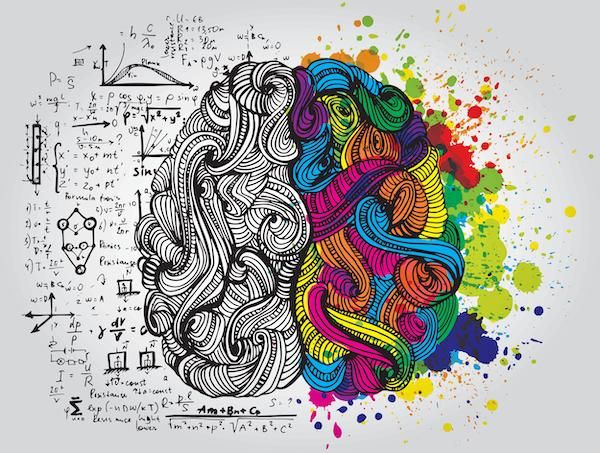2022 International Conference on Mathematical Neuroscience - Digital Edition (6th-8th July 2022)

The International Conference on Mathematical Neuroscience (ICMNS) is an
inter-disciplinary conference series, bringing together theoretical/computational neuroscientists and mathematicians. The conferences are aimed at scientists interested in using or developing mathematical techniques for neuroscience problems.
This is the 3rd Digital Edition of ICMNS. The conference will take place online from 6th to 8th of July 2022. Registered participants will receive links to join the meeting in a booklet, which we plan to circulate a few hours prior to the conference.
ICMNS 2022 will happen on Zoom, where all participants will able to attend talks and hold discussions in breakout rooms. ICMNS 2022 will also be broadcasted live on our ICMNS YouTube channel , where we will also upload all talks after the conference. Please subscribe to our channel to receive updates.
Registration
The conference is free of charge, but the programme and Zoom links to attend the event will only be sent to members of the ICMNS Digital mailing list.
- If you are already registered on the mailing list, no further action is required.
- If you are not registered, please fill out the form below.
- If in doubt, we suggest to fill out the form below and click subscribe: the form will notify you if you try to register twice with the same email address.
Programme
Wednesday the 6th of July (times are GMT+2, time converter)
| CHANNEL 1 | CHANNEL 2 | |
| 14:00- 14:10 |
Opening and coffee | |
| 14:10- 15:10 |
Plenary talk Dani S. Bassett Network neuroscience: Current opportunities and challenges |
|
| 15:15- 16:15 |
Microtalks Session 1 | |
| 16:20- 18:00 |
Parallel session Dynamical systems for neurological disorders Organisers: Christoffer Alexandersen and Louisiane Lemaire |
Parallel session Learning (and compressing) stochastic sequences of events. Organiser: Antonio Galves |
| Heike Stein Modeling working memory deficits in people with schizophrenia |
Claudia D. Vargas Learning stochastic sequences of events by the brain |
|
| Efstathios Pavlidis Multiple-timescale dynamics and mixed states in a model of bipolar disorder |
Aline Duarte Model selection for sequences of random objects driven by context tree models |
|
| Georgia Brennan Clearance and proteopathy in Alzheimer’s disease |
Noslen Hernandez Retrieving the structure of probabilistic sequences from EEG data |
|
| Damien Depannemaecker Dynamics of seizures: from single neuron to whole-brain models |
Marcela Svarc Clustering EEG data by law |
Thursday the 7th of July (times are GMT+2, time converter)
| CHANNEL 1 | CHANNEL 2 | |
| 14:00- 14:10 |
Coffee | |
| 14:10- 15:50 |
Parallel session Nonlinear PDEs in neuroscience. Organisers: Susanne Solem |
Parallel session Metastable dynamics in neural circuits Organiser: Tilo Schwalger |
| Delphine Salort Some PDE models in neuroscience |
Maurizio Mattia Cortical metastability across brain states |
|
| Xu’an Dou Blow-up time dilation: A generalized solution for the NNLIF Fokker-Planck equation and its global well-posedness |
Bastian Pietras Mesoscopic description of hippocampal replay and metastability in spiking neural networks with short-term plasticity |
|
| Pierre Roux Noise-driven bifurcations in a nonlinear Fokker–Planck system describing noisy grid cells |
Daniel Levenstein Excitable dynamics of the sleeping brain |
|
| Alain Blaustein A kinetic description of the strong interaction regime in a FitzHug-Nagumo neural network |
Luca Mazzucato Metastable dynamics in the chaotic regime of random neural networks: emergence of long timescales and ergodicity breaking |
|
| 15:55- 16:55 |
Plenary talk Thomas Serre Beyond feedforward processing: On the role of feedback mechanisms in visual recognition |
|
| 17:00- 18:00 |
Microtalks Session 2 | |
| 18:00- 19:00 |
Discussion on future ICMNS |
Friday the 8th of July (times are GMT+2, time converter)
| CHANNEL 1 | CHANNEL 2 | |
| 14:00- 14:10 |
Coffee | |
| 14:10- 15:50 |
Parallel session Stochastic models for neuronal activity Organiser: Laura Sacerdote |
Parallel session Patterns and Rhythms in Balanced Neural Networks. Organiser: James MacLaurin |
| Ryota Kobayashi Modeling spike frequency adaptation of a neuron and its potential role for sensory coding |
Mark Goldman Balanced networks for working memory and neural integration |
|
| Tomar Rimjhim Increasing inter-spike interval variability can yield a decrease in instantaneous firing rate dispersion |
Olivia Gozel Between-area communication through the lens of within-area neuronal dynamics |
|
| Olha Shchur Distribution of interspike intervals of a neuron with delayed feedback inhibition stimulated with a renewal point process |
Robert Rosenbaum Spatiotemporal Dynamics and Reliable Computations in Recurrent Spiking Neural Networks |
|
| Giuseppe D’Onofrio Jacobi processes with jumps as neuronal models |
Moshe Silverstein Model Reduction of Large Random Neural Networks |
|
| 15:55- 16:55 |
Microtalks Session 3 | |
| 17:00- 18:00 |
Plenary talk Sue Ann Campbell Modulation of synchronization by a slowly varying ionic current |
|
| 18:00- |
Closing remarks |
Contributed micro-talks
Micro-talk sessions are one-hour sessions consisting of a sequence of very short introductions (2 minutes, 1 slide) by the presenters to their research, followed by an opportunity to chat with individual presenters about their research in breakout rooms.
Organising Committee
- Daniele Avitabile (Vrije Universiteit Amsterdam, The Netherlands, Inria MathNeuro Team, Sophia Antipolis Méditerranée, France)
- Áine Byrne (University College Dublin, Ireland)
- Massimiliano Tamborrino (University of Warwick, UK)
- Etienne Tanré (Inria centre at Université Côte d’Azur, France)
Scientific Committee
- Stephen Coombes (University of Nottingam, UK)
- Antonio Galves (Universidade de São Paulo, Brasil)
- Zack Kilpatrick (University of Colorado Boulder, USA)
- Eva Löcherbach (Université Paris 1, France)
- Patricia Reynaud-Bouret (Université Côte d'Azur, France)
- Wilhelm Stannat (Technische Universität Berlin, Germany)